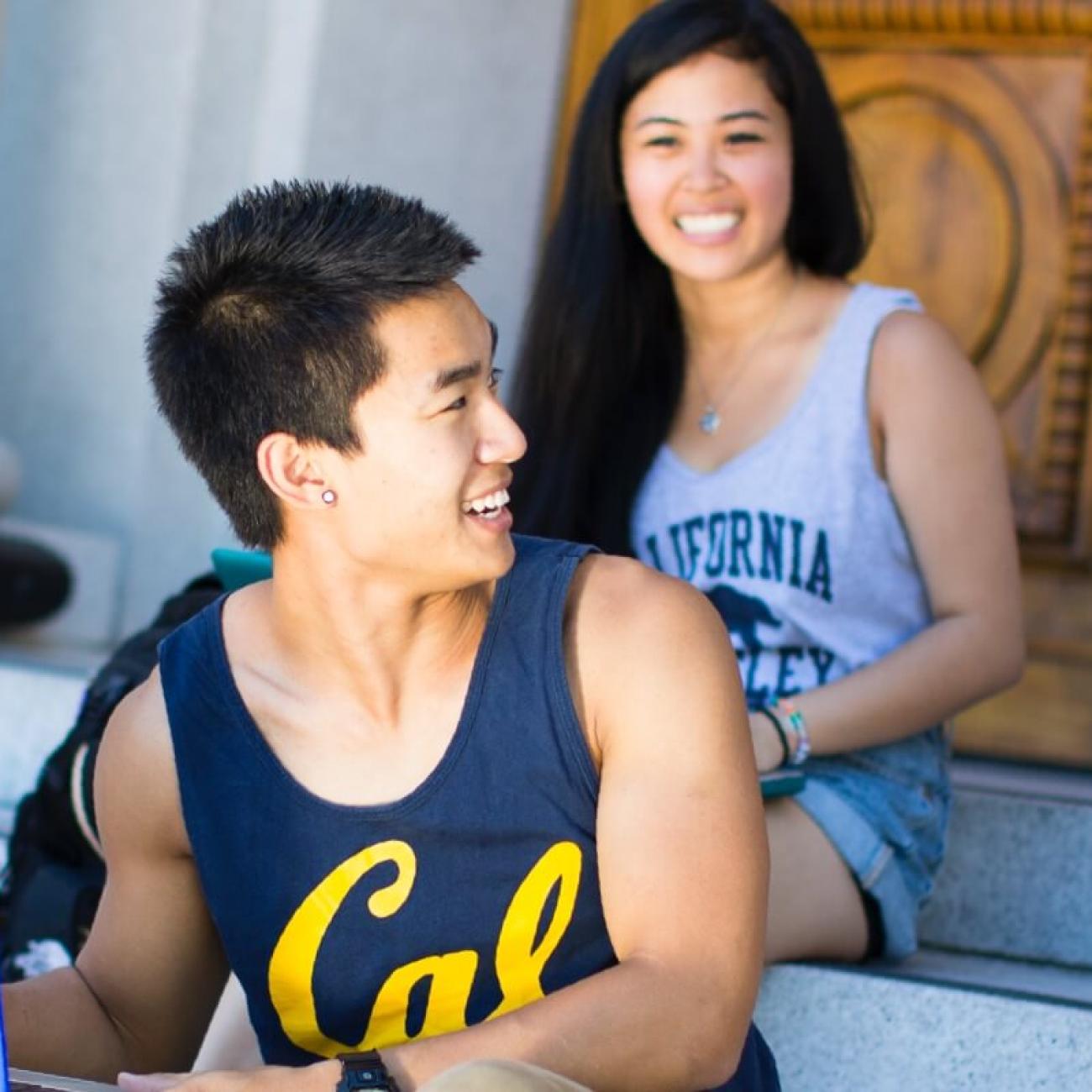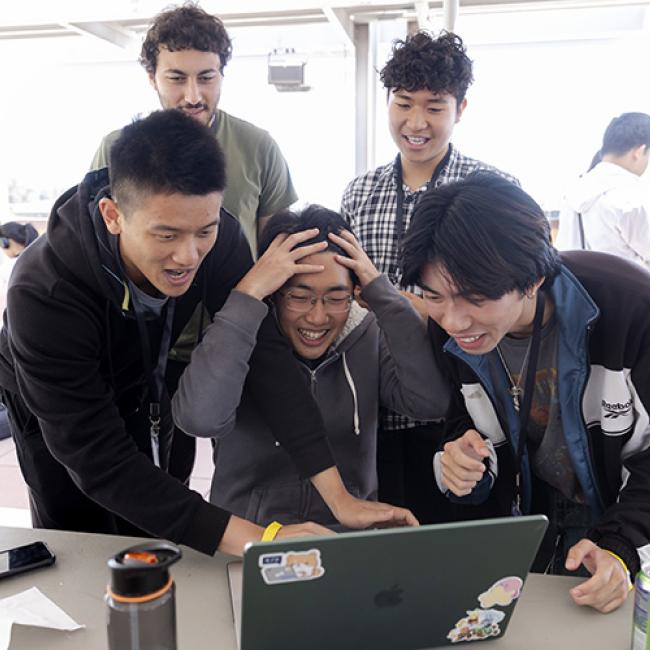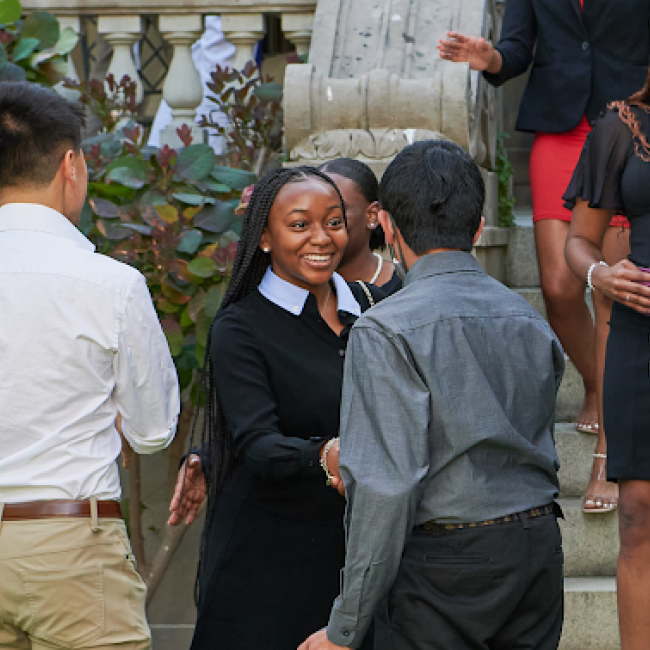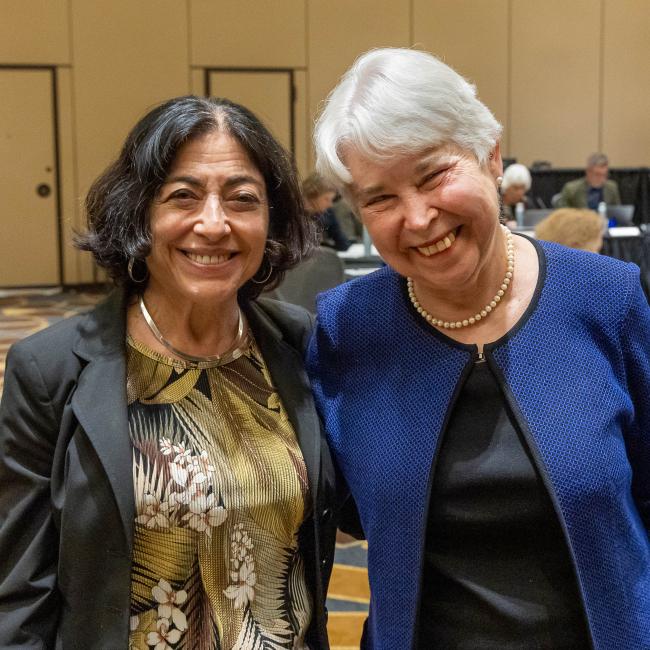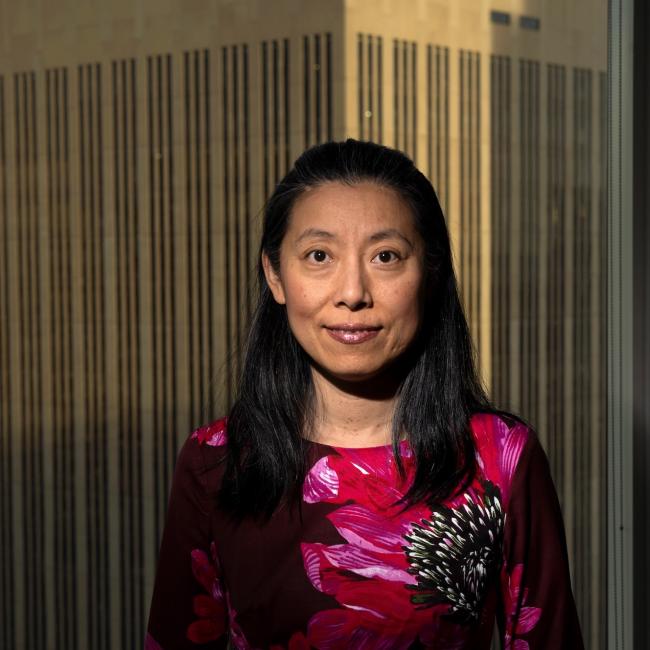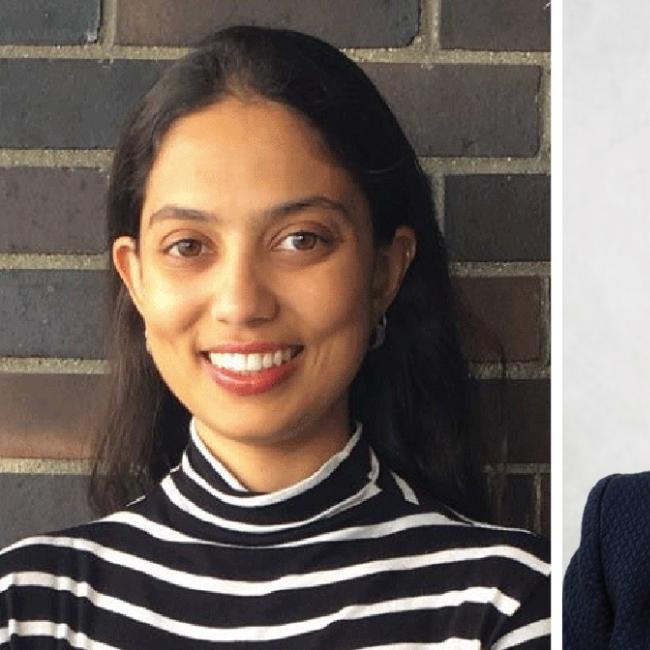UC Berkeley cultivates festive culture of ‘free thinkers’ at AI hackathon
Berkeley News: Over 1,200 computer hackers from around the world packed UC Berkeley’s Martin Luther King Jr. Student Union last weekend during a 36-hour artificial intelligence (AI) learning language model (LLM) hackathon that Berkeley leaders say was the largest event of its kind. Dubbed “the Woodstock of Hackathons,” the event was hosted by Berkeley’s premiere startup accelerator, Berkeley SkyDeck, and Cal Hacks, a nonprofit that runs collegiate hackathons. Hackers traveled to campus from as far away as New Zealand and Singapore to bring their AI-inspired projects to life by building applications on top of LLMs similar to ChatGPT.
As Big Tech invests in virtual reality, studies highlight user privacy risks
People participating in augmented and virtual realities are sharing significantly more information than previously understood through their motion data, two new UC Berkeley-led studies show. Users can be reliably identified using just minutes of their head and hand movements, researchers found. Movement data, which is collected and shared with companies and other players to fuel these worlds, can be used to infer dozens of details from age to disability status. These privacy and security risks are currently most relevant to gamers, the most common consumers of immersive physical and virtual computer-generated environments. People bought almost 10 million virtual reality headsets in 2022, and these risks could become even more pervasive soon. Last week Apple announced its own mixed reality headset, which will compete with Meta to make virtual reality tools interesting and accessible to a mainstream audience.
UC Berkeley, partners aim to make data science inclusive with new intro course
UC Berkeley, Tuskegee University and UC Merced are creating an interdisciplinary, introductory computing and social science course under recently awarded grants from the National Science Foundation. Students won’t need coding experience before they take this class, a common barrier to entry for students who want to try computer science for the first time in college. The class will also teach computing through a data lens, illustrating how it can help address societal issues. This is one of several initiatives by these institutions aimed at increasing the accessibility and inclusivity of undergraduate data science curriculums. This partnership bringing together a Historically Black University, a Hispanic-Serving Institution and the university with the nation’s top undergraduate data science program offers a unique opportunity to help solve this problem.
Families, CDSS community celebrate data science graduates and new college
Kanchana Samala’s mom saw her potential as a data scientist before Kanchana did. Her mom took a class and saw parallels between then high school-aged Kanchana who wanted to constantly learn new things and the field that seemed to never find the same story in data twice. This month, Samala graduated with a UC Berkeley data science degree, a job at The Gap and a still insatiable desire to learn and make a difference. At her new job, she’ll help make fashion more inclusive using data science, a path sure to keep her on her toes. Several of the more than 900 Berkeley data science graduates this year, like Samala, said the field is a way for them to gain clarity about the ever-changing world. The keynote speaker at the undergraduate major’s commencement ceremony on May 18 said this desire will help students contribute to society.
UC Berkeley College of Computing, Data Science, and Society established
The UC Board of Regents today voted to establish UC Berkeley’s College of Computing, Data Science, and Society (CDSS), the campus’s first new college in more than 50 years. The college will develop, implement and share high-quality, ethics-oriented and accessible curricula, educating a diverse student body in data science, computing and statistics. It will also create new fields, applications and solutions to societal problems through groundbreaking, multidisciplinary research that capitalizes on Berkeley’s excellence across campus. The vote culminates a three-year process by Berkeley and the UC system to transform the Division of Computing, Data Science, and Society into a college. Now, the college can more effectively form new programs and partnerships, support instruction and research and foster identity and community among faculty, students and alumni.
CDSS and partners win state grants to expand access to data science field
UC Berkeley’s Division of Computing, Data Science, and Society will receive four grants to increase access to and awareness of data science, a California state initiative announced. The California Education Learning Lab grants will fund CDSS and partner institution efforts to expand data science curriculum and pipelines at state community colleges and UC Merced. CDSS will also be the lab’s cohort coordinator for other academic data science grant recipients. “This is an influential foundation at the state level investing in areas we’ve already been working in,” said Eric Van Dusen, outreach and tech lead for the Data Science Undergraduate Studies program, which is housed within the CDSS. “We’ve had successful pilots with a few partners, and these resources offer us a chance to make a much deeper impact in California.”
UC Berkeley joins NSF-backed AI institute for cybersecurity
College of Engineering: The National Science Foundation (NSF) has announced a sweeping effort to address risks and advance the science and technology and broad applications of artificial intelligence, involving universities across the nation. The $140 million investment will establish seven new National Artificial Intelligence Research Institutes (AI Institutes). Five UC Berkeley faculty members will join one of the key institutions, the AI Institute for Agent-based Cyber Threat Intelligence and Operation (ACTION). Dawn Song, computer science professor and co-director of the UC Berkeley Center on Responsible Decentralized Intelligence, will act as principal investigator for the Berkeley team. She’ll be joined by electrical engineering and computer sciences professor Stuart Russell on the executive committee, as well as by professors Pieter Abbeel, David Wagner and Bin Yu.
Two EECS professors recognized with NSF CAREER Awards
College of Engineering: The National Science Foundation (NSF) recognized electrical engineering and computer sciences assistant professors Yakun Sophia Shao and Gireeja Ranade with Faculty Early Career Development (CAREER) awards. The awards are part of NSF’s prestigious Faculty Early Career Development (CAREER) Program, which supports early-career faculty “who have the potential to serve as academic role models” and to become leaders in their field, according to the NSF website. They are among the agency’s most competitive honors.
How art history and statistics helped a graduating student understand herself
When Alice Xie moved from China to California as a teenager, she experienced major culture shock. She understood the words people spoke, but conversations were still hard to follow. She often felt isolated and underestimated. Through art, Xie found a way to explore and communicate about this period in her life. So it was no surprise when she came to UC Berkeley and became an art history major. What caught her off-guard was that her other major – statistics – helped her understand herself, too. “How stats [statistics] works is just how our brain works,” said Xie, remembering the moment her sophomore year this idea clicked. “We receive the data – the information – from all over the place. We process them in our mind and the mind is like a ‘layer’ – a gateway or a hole. Then we create our own interpretation and knowledge and reflect back to us or to the world.” After this realization, Xie said, she felt “relief and also clarity in how I think about myself and my work in so many aspects.”
Safe drinking water is a right. Experts want AI to help make it a reality.
Safe, clean and affordable drinking water is a human right in California. But making that legal requirement a reality is a difficult challenge exacerbated further by climate change. Two water engineers believe artificial intelligence can help. Working with UC Berkeley’s Data Science Discovery program students, they are building a chatbot they hope will help California Water Resources Board staff discern, communicate and enforce rules to ensure the public’s water is safe to drink.

